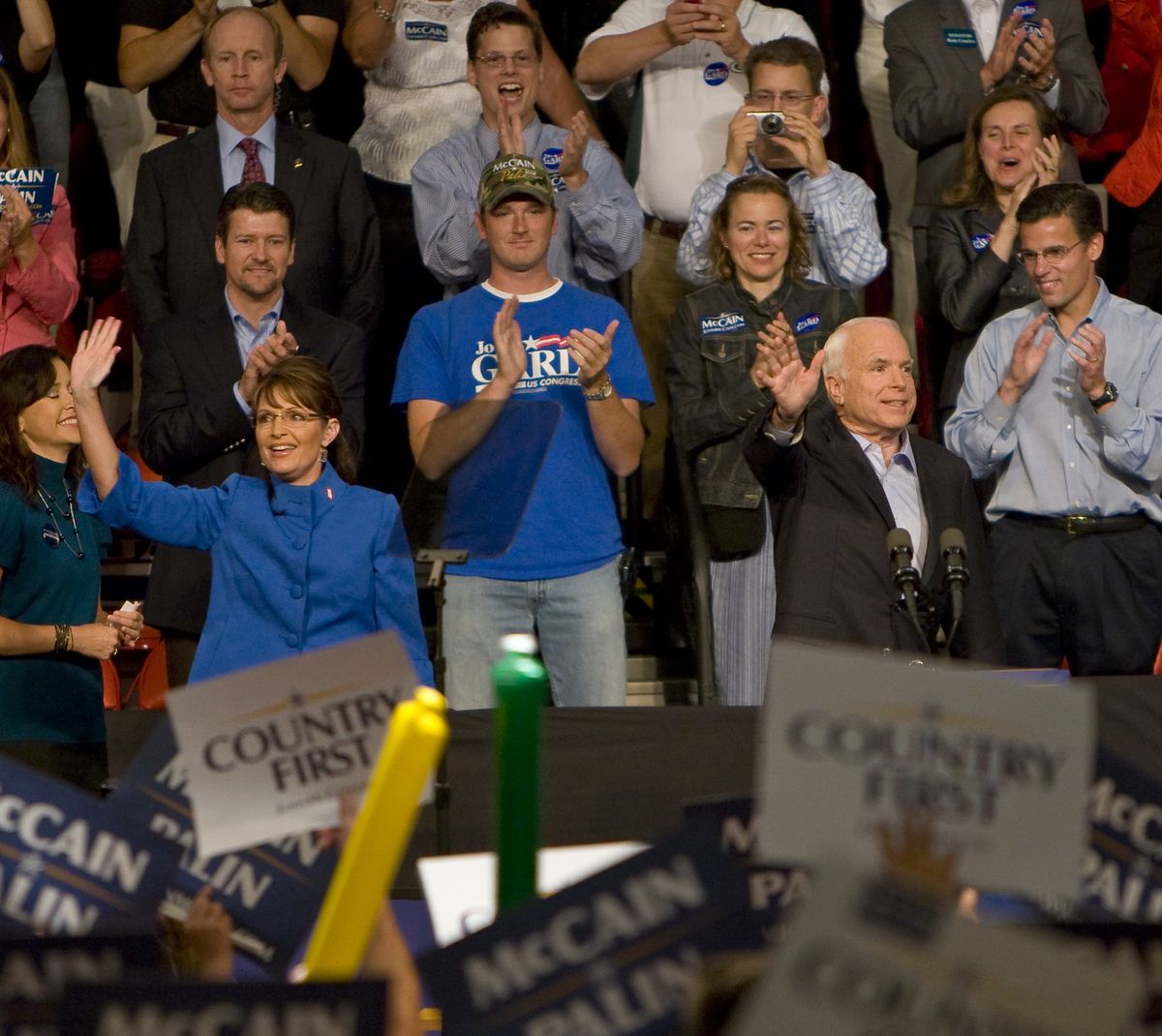Candidates call for action to stem Wall Street crisis
McCain, Obama try to gain upper hand on economic issues

CEDAR RAPIDS, Iowa – John McCain and Barack Obama moved aggressively Thursday to seize the mantle of reform amid Wall Street’s maelstrom, with McCain saying he would fire the head of the Securities and Exchange Commission and create an agency to overhaul weakened financial firms, and Obama proposing to inject more money into the battered financial system.
The heightened efforts to offer solutions to the chaos in the financial markets showed both presidential candidates struggling to appear decisive and take advantage of the crisis without sounding alarmist.
Promising a “proactive” response, McCain sought to depict himself as a stern trust-buster in the guise of his political hero, Theodore Roosevelt. The Republican candidate’s new stance as angry populist carries risk, but also a potential bounty of political capital.
“Mismanagement and greed became the operating standard while regulators were asleep at the switch,” he said.
Obama, who had been aggressive earlier in the week in depicting McCain as “out of touch” for saying that the economy’s fundamentals were “sound” while the markets reeled, took a more measured route. In Espanola, N.M., the Democratic candidate called for legislation that would bolster “liquidity to enable our financial markets to function.”
But while he continued his assault on McCain for a “reverse course” move toward economic populism, Obama did not spell out in detail how his own plan would work.
McCain started the day off pugnacious, saying in Cedar Rapids that if he were president, he would fire SEC Chairman Christopher Cox, a former GOP congressman from Southern California. Cox, an appointee of President Bush, dismissed McCain’s comment, saying that “it is precisely the wrong moment for a change in leadership that inevitably would disrupt the work of the SEC at just the wrong time.”
Obama mocked McCain’s call to fire Cox by suggesting that voters “fire the whole Trickle-Down, On-Your-Own, Look-the-Other-Way crowd in Washington.”
McCain’s tough words, however, added bluster to the president’s actual authority. The president appoints the chairman, but cannot fire him.
Anticipating ridicule from the Obama camp, spokesman Brian Rogers insisted that a president “always reserves the right to request the resignation of an appointee and to maintain the customary expectation that it will be delivered.”
White House spokeswoman Dana Perino later said that Bush still supports Cox.
The chasm between the two GOP leaders over Cox’s future provides McCain with a small burst of independence to point to in his continuing effort to distance himself from Bush.
But McCain was not a maverick when Cox was nominated. He did not oppose Cox – nor did Obama – when the Senate confirmed Cox by voice vote in July 2005.
McCain also promised that, as president, he would create an agency similar to the Resolution Trust Corp., which cleaned up the savings and loan debacle of the 1980s. Echoing a proposal under discussion by senior federal finance officials and congressional leaders, McCain said his new agency would “identify institutions that are weak and take remedies to strengthen them before they become insolvent.”
The Arizona senator’s top economic adviser, Douglas Holtz-Eakin, said the proposed agency would manage financial institutions on the verge of toppling into insolvency, providing “appropriate liquidity.”
Formed as a “Treasury-supported enterprise,” the adviser said, the agency would ease the flow of credit and enhance investor confidence by assuring that the troubled firms’ assets and liabilities were assessed correctly at market value.
But McCain’s push for a reprise of the RTC for Wall Street surprised many economists who have worried aloud in recent days about the long-term effects of government bailouts.
“It has long been Republican economic orthodoxy to warn against government bailouts, and for McCain to embrace the idea is really pretty stunning,” said Robert E. Litan, vice president for research and policy at the Kauffman Foundation and a regulatory specialist during the Carter administration.
Obama moved more cautiously, scheduling a meeting for today with former Fed chief Paul Volcker and Treasury Secretaries Paul O’Neill, Robert Rubin and Lawrence Summers.
The senator from Illinois planned to discuss his new legislation with his advisers before spelling it out to the public, said Jen Psaki, a spokeswoman.
Obama has not taken a position on the rescue of AIG, unlike McCain who has backed it. But on Thursday, he called on the Treasury and Federal Reserve to “use their emergency authorities to maintain the flow of credit, to support the availability of mortgages and to ensure that our financial system is well capitalized.”